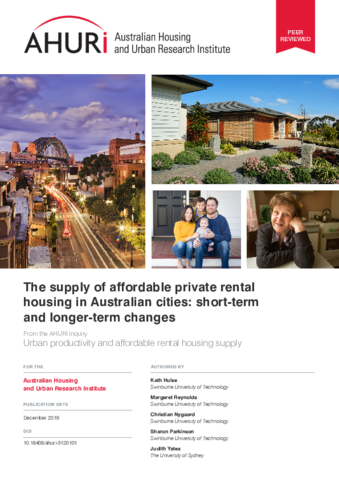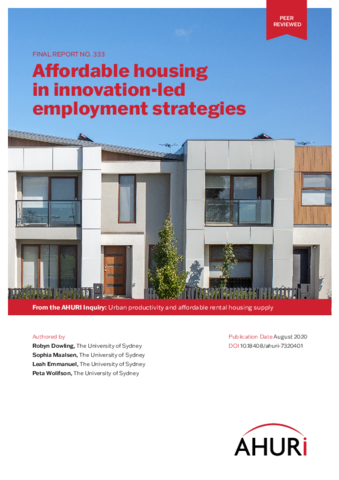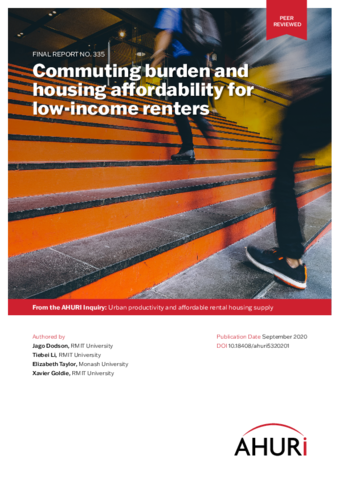This research examines international and Australian practice in using place-based planning and funding interventions (i.e. they are targeted at specific areas or regions such as at a particular city or geographical area), such as ‘city deals’, to deliver affordable rental housing near employment centres and to enhance urban productivity.
Three key lessons emerged through the analysis of developing and implementing place-based deals across North America, Europe, and the UK: a focus on infrastructure funding in place-based deals to support economic development has meant that benefits to disadvantaged groups are often unclear; the emphasis is often on overall housing supply targets, which have not translated into improved outcomes for low-income households in private rental; and the primary objectives of funding deals, as well as frameworks for monitoring and measuring performance, need to be made explicit, and governance arrangements should be robust and transparent.
In addition, satellite cities have lower-cost housing markets and can play a role in offering affordable rental accommodation for lower-income workers. However, it is important to ensure that housing growth is balanced by local employment and transport opportunities, to ensure that low income renter households are not forced to commute long distances.
City deals, as a strategy for fostering new economic opportunities in metropolitan or regional areas, provide an opportunity to more closely link these funding packages with defined approaches for delivering affordable rental housing supply.





